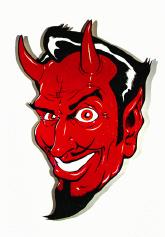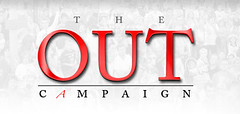Party Time: A Bevy of Alcoholic Beverages for all and sundry
Alcohol: The very drink that is always synonymous with mindless fun and partying.
In most countries today (Not inclusive of those that require women to dress in burkas), alcohol is a very popular beverage: Sold in the form of wines and beers, it can be bought and consumed from just about everywhere. From the local convenience store to the trendy nightclubs, the sheer force of consumerism has ensured that as long as one is not under-aged, there really are a whole range of choices for the average drunkard as well as the high-classed wine connoisseur.
In fact, the consumption of alcohol is so pervasive that most people seem to take the right to consume alcohol for granted.
The Prohibition Era (1920-1933)

God: Clueless As to Why He Created Alcohol
In the 1900s, the emergence of several fundamentalist Protestant Christian Groups began to voice their displeasure over what they deem to be “rampant alcoholic abuse”. While they claimed that alcohol was indeed a “gift” from God, its abuse was of demonic origins. A strange gift, indeed, from a deity who probably doesn't want his Creation to party in a sea of mass orgies and beverages.
Of course, there is always the Devil, who seems to enjoy sloshing himself drunk and slumping his naked body on some run-down bar tops. Boy oh boy, no wonder the fundies are all hot and bothered with Satan's horny ass.

Bloody Morons Of The Lord: No Drinking Please, We are Christians.........
As a result, far right Christian groups, such as the Independent Order of Good Templars (Sounds like a Crusade/Terrorist Organization to me!), the Sons of Temperance, the Templars of Honor and Temperance, the Anti-Saloon League and the National Prohibition Party allied in a bid to impose their arse-while duty to ensure sobriety for every God-damned citizen of America.
As a result of their conniving campaigns, conservative politicians began to sway towards these groups in a bid to seek political leverage against liberal-slanted ones. And the conservative bunch got exactly what they wanted.
The Eighteenth Amendment to the United States Constitution (ratified January 16, 1920) and the Volstead Act (passed October 28, 1919) was thus born: Prohibition began on January 16, 1920, when the Eighteenth Amendment went into effect. Federal Prohibition agents (police) were given the task of enforcing the prohibition, which began to snowball into an obnoxious witch hunt.
Prohibition: A Case of The Forbidden Fruit?
As a result of the prohibition, legitimate alcoholic companies were forced to closed down overnight, and along with them, thousands of jobs went up in smoke.
As in the case of the proverbial temptation of Eve, the prohibition did little to curb the drinking habit amongst the masses; in fact, the reverse happened. More than ever, people turned to alcohol as a recreational drug: The difference, this time, was the source of the alcohol and the ones running the breweries.
The Mafia Steps In
As is with today's drug cartels, when legitimate companies are banned from selling any lucrative, controversial product, the underworld of gangsters and evil mobster inevitably steps in and takes over that void.
These shadowy creatures hold utter contempt for the law, and when the legitimate alcoholic beverage companies closed down, these mobsters, like vultures circling dead and dying beasts, could hardly wait to sink their crooked beaks into raw, bloodied flesh.
A bootleg market emerged to fill in the demand for alcohol:The business of selling alcoholic drinks merely transferred from controlled, legalized enterprise to the hands of the mafia.
As a result, underground pubs began sprouting all across America, as non-prohibition countries in the vicinity, such as Mexico, began shipping in bootleg supplies.
As in the case of all gangland activities, violence became the unsavory hallmark of the illegal alcoholic trade: Rival gangs began to fight over the right to sell bootleg liquor, and many a gang member lost his life in shootouts that began to erupt and rage all over America.
In addition, many people died from bootleg alcohol, as the brewery plants that distilled them came from dubious sources. As a result, many people died of liver-related failures as a result of drinking poorly-distilled alcohol.
To further worsen the situation, racketeering amongst the law enforcement officers became rampant: Lured by the promise of bribery and a stake in the bootleg business, many police officers gave advanced tipoffs to mobsters to inform them of impending raids in exchange for monetary bribes.
In short, the Prohibition Era was a major political and civil rights blunder in the broadest sense, and the Christian morons who attempted to impose their stupid moral values on the American public had not only worsened the drinking problem, they had ushered in more problems that accumulated to the point whereby rampant shootouts and widespread bribery became the social norm across the American landscape.
End of Prohibition Era
By the 1930s, it was becoming painfully clear that banning alcohol was not a solution to alcoholism and its negative effects. Not only did the number of alcoholics not diminish, it gave rise to a whole spectrum of social problems, most of which would never have surfaced if not for the ban.
On March 23, 1933, President Franklin Roosevelt signed into law an amendment to the Volstead Act known as The Cullen-Harrison Bill, allowing the manufacture and sale of "3.2 beer" (3.2 percent alcohol by weight) and light wines.The Eighteenth Amendment was repealed later in 1933 with ratification of the Twenty-first Amendment on December 5, thus officially signaling the end of the Prohibition Era.
Lessons Learnt From the Prohibition
Like the fundamentalist Christians of today, the fundamentalists of the 1930s era were dogmatic, irrational and simply could not view any legal social norm and practice as a protected right of speech.
While it is true that alcohol is a very dangerous drug (many deaths, including liver failure and alcohol-induced driving incidents, have been attributed to alcohol), the right to imbue yourself with whatever you deem fit, as long as you do not threaten the lives and properties of other people, is a right only to be exercised by the individual himself or herself and not the State.
By attempting to arm-wrestle alcohol away from the hands of bevel-eyed drinkers, these fundamentalists did not realize that once you take away the legality of product, there is always someone to replace these legitimate manufacturers.
A precursor of today's "War on Drugs", the Prohibition shares many parallels with today's drug crackdown: Mobsters and mafias with their massive, yet intricate networks of shady dealers, gang leaders and violent turf fights, usually settled with the muzzled end of a gun.
If there is anything society in general can learn from this episode, it is this: Religion should always stay out of the affairs of the state.







5 comments:
Absolutely! Religion must be kept away from the state, and you are correct that this is the central lesson of prohibition. I just wish it was a lesson that had been learned.
Woohoo! Bring on the booze! =D
Vjack:
Religious laws cannot coexist with secular laws. That is because the former is based on the sole purpose of offending an imagined deity, while the latter is simply enacted to protect civic interests.
Sailesh
Booze is a good thing, but remember: When you drive, don't drink, and vice versa.
I keep wondering if they should just legalize everything,but then again, meth labs would be everywhere, right? Not sure on this issue, pot should definitely be legalized, even though I don't even smoke it.
Post a Comment